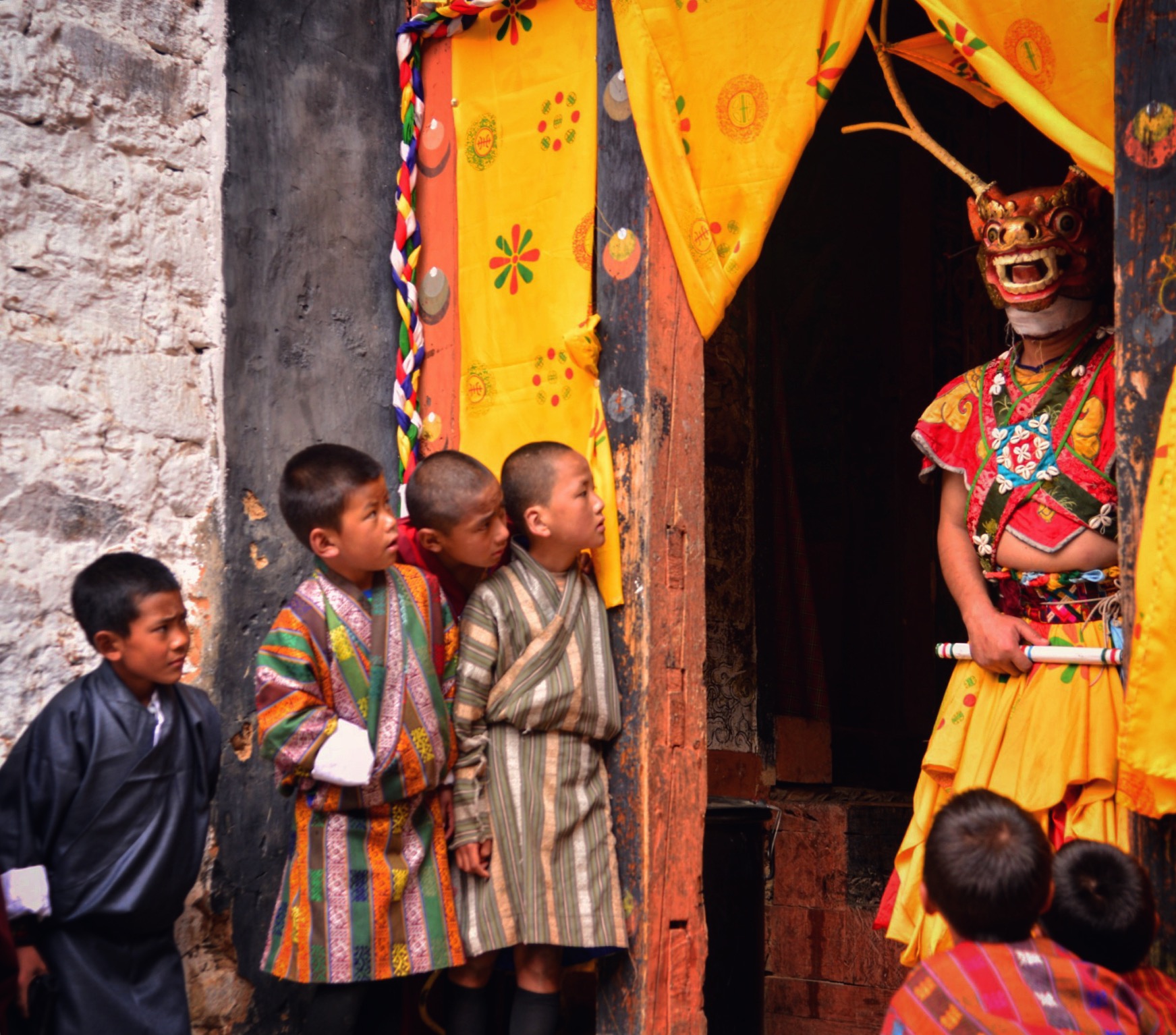Bhutan, known for its pristine landscapes and deep-rooted Buddhist traditions, is a destination shaped by unique customs, etiquette, taboos, and entry restrictions. This guide outlines essential practices to help travelers enjoy a respectful and meaningful journey through the Land of the Thunder Dragon.
Table of Contents
1. Smoking Restrictions and Tobacco Regulations
Bhutan enforces some of the strictest anti-smoking laws in the world. Since 2021, the sale of tobacco has been legalized through government outlets, but smoking in public remains banned.
- Import Rules: Visitors may bring up to 200 cigarettes (two cartons), but must declare them at customs and pay import taxes of 100–200%.
- No Local Sales: Tobacco is not available at airports, shops, or duty-free stores.
- Designated Areas Only: Smoking is permitted only in designated rooms or private spaces with consent.
- Receipts Required: Always carry your customs declaration receipt—spot checks are enforced.
Bhutan’s clean, smoke-free environment is a point of pride and a benefit to non-smokers. For more details on Customs & Duty Free Allowances, please click here.
2. Zero-Tolerance Drug Policy
Bhutan strictly prohibits the possession, use, or trafficking of illegal drugs, including marijuana (even though it grows naturally in the region).
- Penalties: Offenses carry severe prison sentences and heavy fines.
- Applies to All: Foreign visitors are subject to the same laws as citizens.
Avoid any involvement with narcotics—this is a non-negotiable legal boundary.
3. Prohibited Exports: Antiques and Wildlife Products
To preserve cultural heritage and biodiversity, Bhutan prohibits the export of:
- Antiques and Sacred Items (including thangkas, statues, masks, and religious texts over 100 years old)
- Wildlife Products, ivory, or unprocessed plant materials
Exporting such items requires authorization from the Department of Culture (Archaeology Division).
4. Ban on Plastic Bags and Nationwide Anti-Smoking Policy
Bhutan was the first country in the world to ban both:
- Public Smoking: Entirely prohibited to protect public health and spiritual wellbeing.
Plastic Bags: Banned to uphold environmental integrity and reduce waste.
These policies reflect Bhutan’s values of sustainability, mindfulness, and Buddhist compassion.
5. Photography Etiquette
Bhutan’s natural and cultural beauty is photogenic, but discretion is key:
- Always ask permission before photographing people, especially in rural areas.
- No photography inside temples, monasteries, or during rituals.
- Avoid disturbing monks, worshippers, or sacred objects.
- Consult your guide when uncertain about photography rules.
6. Religious Customs and Temple Etiquette
Bhutanese Buddhism deeply influences daily life, architecture, and social behavior. Respect for spiritual customs is essential when visiting religious sites such as temples, monasteries (dzongs), and stupas. Follow these important guidelines:
- Remove your shoes, hat, and sunglasses before entering any sacred space.
- Dress modestly: Wear long sleeves and pants or skirts that cover the knees. Avoid revealing or tight clothing.
- Always walk clockwise around stupas, temples, prayer wheels, and religious monuments—this reflects reverence and good karma.
- Do not touch sacred objects, statues, altars, or religious texts, and never sit on raised platforms or altars.
- Accept holy water with both hands: sip a little, then touch your head—this is a ritual cleansing act.
- Do not point with your finger at sacred images or people—use an open palm instead.
Maintain silence and reverence inside sacred spaces. Avoid interrupting rituals or standing in pathways during ceremonies. - If seated near monks or nuns, sit cross-legged and keep your head lower as a sign of humility.
- Do not point your feet at monks, altars, or sacred objects—feet are considered unclean.
- If a monk blesses you with a carved wooden phallus, accept it calmly and respectfully. This is a traditional blessing for protection and fertility, not meant to be vulgar.
- Phallic symbols painted on walls or carved into wood are protective religious icons, not obscene images.
Cultural sensitivity and quiet respect will greatly enhance your experience and ensure your presence is welcomed.
7. Unique Cultural Practices
Bhutan’s religious customs are rich and symbolic:
- Phallic Symbols: Painted or carved symbols promote fertility and ward off evil. They are revered, not vulgar. Read more about it here.
- Blessings with Wooden Phallus: Some monks tap visitors on the head with a carved phallus for good luck—accept it respectfully.
- Spiritual Offerings: Locals may flick drops of tea or alcohol into the air as offerings to spirits—observe with reverence.
8. Respect for Head and Feet
In Bhutanese culture:
- The head is sacred—do not touch anyone’s head, even children.
- Feet are impure—never point them at people, religious items, or sacred spaces.
- When sitting, cross your legs or kneel. Always remove shoes before entering homes or temples.
9. Dress Code in Sacred Spaces
Appropriate attire is crucial when visiting religious or cultural sites:
- Wear long pants/skirts and tops that cover shoulders and arms.
- Avoid tight-fitting, revealing, or sleeveless garments.
- Never step over door thresholds—they are considered sacred.
- Keep your head lower than that of monks when seated near them.
10. Respect for the Bhutanese Royal Family
The Bhutanese monarchy is deeply respected:
- Do not speak critically of the royal family.
- Photography of royal members or palaces is forbidden unless clearly permitted.
Avoid showing disrespect during national events or when viewing royal images.
11. Entry Regulations and Customs Laws
When entering Bhutan, note these key rules:
- Tobacco: Up to 200 cigarettes per person; must be declared and taxed.
- Alcohol: Maximum 1.5 liters per adult.
- Electronics: One each of devices like cameras, phones, and laptops—no need to declare if within limits.
- Currency: No limit on foreign currency brought in, but Bhutanese Ngultrum and Indian/Nepali rupees cannot be taken out.
- Forbidden Exports: Antiques, sacred artifacts, and wildlife products without permits.
12. Environmental and Wilderness Etiquette
Bhutan is a carbon-negative nation that fiercely protects its natural resources:
- Hunting, fishing, or logging are illegal without government permits.
- Do not pick plants, disturb wildlife, or veer off marked trails.
- All trekking in protected zones requires a licensed guide.
- Always carry out your trash, even biodegradable items.
- Some sacred regions (e.g., near holy mountains) are off-limits.
13. Communication and Social Etiquette
Bhutanese people are warm and dignified. Good manners are expected:
- Greet with “Kuzu Zangpo La” (Hello) and say “Kadrin Chey La” (Thank you).
- Avoid raising your voice, pointing fingers, or displaying aggression.
- Use both hands when giving or receiving gifts or items.
- Follow your guide’s instructions—they help ensure respect for local customs and laws.
14. Travel Tips for Cultural Respect
- Avoid giving money to children or villagers—gifts like school supplies are more appropriate.
- Be patient with Bhutan’s unhurried pace—life is slower by design.
A genuine smile and open heart go a long way in making connections.
Want to learn more about Bhutan?
Dive into our Ultimate Travel Guide – your one-stop resource for everything from visa rules and packing tips to Bhutanese cuisine, festivals, traditions, and spiritual landmarks. Explore culture, landscapes, and legends for a truly immersive and unforgettable Himalayan journey.
Are You Ready to Experience Bhutan with YPT?
Join us for a transformative journey through the Land of the Thunder Dragon—where ancient culture, breathtaking landscapes, and mindful adventure await. Discover our upcoming tours and take the first step toward your unforgettable Himalayan escape today.






